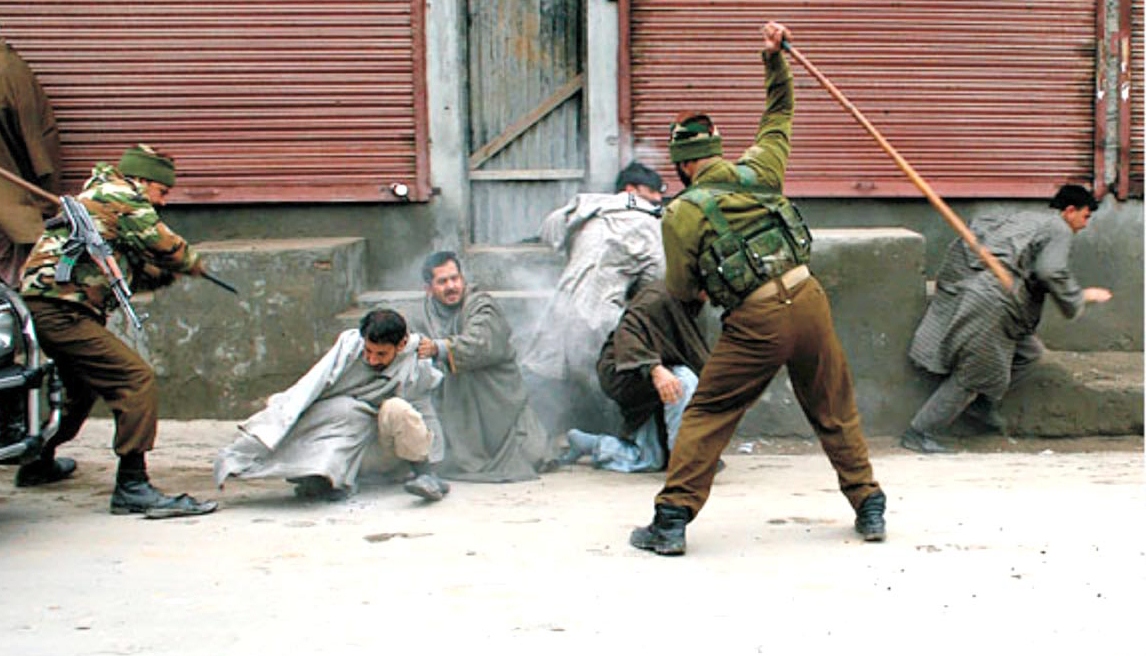
prominent international human rights watchdog body has denounced Indian Prime Minister Narendra Modi’s government for intensifying repression in Jammu and Kashmir, targeting Muslims in India and for harassing, arresting and prosecuting activists, journalists, and others critics.
New York-based Human Rights Watch (HRW) said in its ‘World Report 2021’, the government continued to impose harsh and discriminatory restrictions on Indian Illegally Occupied Jammu and Kashmir (IIOJK) since revoking the disputed region’s special status in August 2019.
In the meanwhile, attacks continued against minorities, especially Muslims, even as the authorities failed to take action against the ruling Bhartiya Janata Party (BJP) leaders, who vilified Muslims, and the BJP supporters who engaged in violence, the report added.
In the 761-page report – its 31st edition – the HRW said that the Covid-19 lockdown disproportionately hurt marginalised communities due to loss of livelihoods and lack of food, shelter, health care, and other basic needs.
“The Indian government seems determined to punish peaceful criticism using draconian laws,” Meenakshi Ganguly, HRW’s South Asia Director, said in a statement. “Instead of addressing growing attacks on Muslims, minorities, and women, Indian authorities increased their crackdown on critical voices in 2020.”
The report said that last February communal violence in Delhi killed at least 53 people, with over 200 injured, properties destroyed, and communities displaced in targeted attacks by Hindu mobs, adding that the vast majority of victims were Muslim.
In IIOJK, the report said scores of people remained detained without charge under the draconian Public Safety Act, which permits detention without trial for up to two years. The government also clamped down on critics and journalists.
In June, it said, the government announced a new media policy in IIOJK that empowers the authorities to decide what is “fake news, plagiarism and unethical or anti-national activities” and to take punitive action against media outlets, journalists, and editors.
The policy contains vague provisions that are open to abuse and could unnecessarily restrict and penalise legally protected speech. The government also clamped down on critics, journalists, and human rights activists.
The Armed Forces (Special Powers) Act continued to provide effective immunity from prosecution to security forces, even for serious human rights abuses, the report said. Indian forces also continued to use shotguns firing metal pellets, despite evidence that they are inherently inaccurate and cause injuries indiscriminately, including to bystanders, violating India’s international obligations, it added.
The intensifying repression in India resulted in international criticism, including by the United Nations High Commissioner for Human Rights, Michelle Bachelet, who raised concerns over human rights violations in Jammu and Kashmir, arrests of activists, and restrictions on civil society, the report noted.
Crimes against Dalits increased, in part as backlash by members of dominant castes against what they might perceive as a challenge to caste hierarchy, the report said. Crimes against women increased too and the authorities’ response highlighted how women from marginalised communities faced even greater institutional barriers to justice.


1725612926-0/Tribune-Pic-(8)1725612926-0-165x106.webp)















COMMENTS
Comments are moderated and generally will be posted if they are on-topic and not abusive.
For more information, please see our Comments FAQ